Blog Article: Recent Graduates’ University Experiences
Monday, 11 May 2020
Share this article:
Two of the school’s IB1 students took time to interview several of the school’s recent graduates to find out about their university experiences so far. Here’s what they discovered… Please note this article was originally featured in the BHS Speakout publication (April issue), a magazine voicing students views and opinions.
by Adriana G. and Yasmina Y. (IB1)
1. What university clubs/ sports does your university have?
“At the beginning of every academic year at The University of British Columbia (UBC), Club Fair takes place to promote all clubs and extracurricular activities. It’s an understatement when I say I’ve never seen more stands in my life. With over 300 student societies, I’m sure you’d find something you’re passionate about. Varying from sports teams of all levels, languages, hobbies, charity work, fraternities & sororities, literally every single thing you can think of probably had a stand for it. It’s truly one of the happiest days on campus as you can sense the unity and sense of pride in belonging to a club.” – Nataly El Bittar, UBC
“At the university I attended, Notre Dame University Louaize (NDU) there are a variety of clubs a student would be able to join. There’s a lot to mention but they tackle all sort of hobbies/ interests. From the astronomy to the theatre club, to the basketball and ping pong team; a student has the opportunity to showcase their talents and explore new interests.” – Michelle Bado, NDU
“NDUMUN, Friedrich Naumann Foundation Workshops, and an independent journalism group for university students in Lebanon.” – Michel Ghaleb, NDU
“In universities in the UK you have something called societies instead of clubs, and you can find societies for everything you want. Personally I chose an Arab society, and they meet up usually every Wednesday after school. They usually make Wednesday a short day for extracurriculars, so if you want to do sports, or other things like that.” – Talia Matar, University of Nottingham
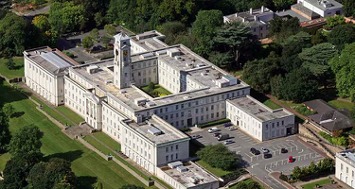
“I go to The American University of Beirut (AUB); we have the biggest variety of clubs and sports, everything from mental health, to first aid, to dance clubs; in sports, we have soccer, basketball, disk, rugby, swimming, handball.” – Michel Sadek, AUB
“I played JV soccer at Covenant College (Division III) even though I didn’t play much at BHS during my last couple of years due to knee injury.” – Roy Makkar, Covenant College
“Lebanese American University (LAU), like BHS, has a large variety of extracurricular activities, including clubs and sports teams. (https://www.lau.edu.lb/experience/clubs/index.php this is a list if u want to pick a few that BHS students would be interested in.)” – Enzo El Adm, LAU
“In terms of clubs, NDU offers any club you can think of, because they’re student-based and students create the clubs. I’m currently the Vice President of the NDU Psychological Society, which is basically the psychology club. NDU offers clubs for every major (major-based clubs), but also other non-major-based clubs like the sports teams (track, volleyball, swimming), NDUMUN, astronomy club, etc. In terms of majors, it offers a very wide range of majors, some of which are not offered elsewhere in the Middle East, like educational psychology for example. It’s the only university with concentrated psychology majors, like industrial psychology, clinical psychology, educational psychology. It has actuarial sciences, which is very rare; in terms of engineering, it has all the concentrations of engineering, and it’s considered the best in design, so it offers a wide range of majors.” – Tarek Yared, NDU
2. How did you adapt to another country (if applicable)?
“Moving from Lebanon all the way to Vancouver, Canada wasn’t easy at all. Honestly, I would say the best way to adapt is to keep in touch with those back home and keep an open mind about your new environment. When you first move, everyone is so sweet and wants to make friends in their first year because you’re all in the same boat. Once you start having a routine, you’ll realize how easy it is to adapt, it’ll be hard at times, but you’ll always manage to keep yourself busy with new things. Reach out to people, even if it’s that random person you walk past in your dorm hallway, get out of your comfort zone and trust me it’ll start to feel like home in no time.” – Nataly El Bittar, UBC
“During my early school years, I moved around from country to country, from school to school, until the 5th grade, when I finally settled in BHS until I graduated. Adapting was no easy task, but I was lucky enough to have transitioned to schools that had students with international backgrounds. So, I didn’t feel entirely alone in the process. Being surrounded by so many nationalities, as well as learning about them and sharing my own nationality created a sense of unity for me.” – Michelle Bado, NDU
“Adapting from Lebanon to the UK was actually really hard. In Lebanon, we’re used to everyone doing something for us. I’ve actually gone grocery shopping once in Lebanon. In the UK, everything is so entirely different; you have to do everything by yourself, depend on yourself 100%. If you forget something, there’s no one to blame but yourself. Getting used to that took some time; give yourself time and eventually you’ll adjust. In the UK, you always have someone to help you in the university, which assigns each person a tutor. If you’re struggling with anything you can just tell them and they’ll tell you what to do, it’s super simple, the university makes it easier for you as an international student to adjust, it’s very nice. There are going to be a lot of international students going through the same thing, it’s nothing to worry about.” – Talia Matar, University of Nottingham.
“I didn’t really need to adapt to living abroad in the US as opposed to Lebanon because BHS really trained me to meet people internationally and I had to adjust the move from Syria to Lebanon anyway as a teenager occasionally living alone. Furthermore, I learned from my brother as he taught me and warned me from all the mistakes he did when he moved to the US.” – Roy Makkar, Covenant College
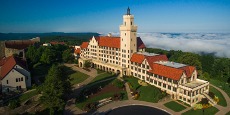
3. Why did you choose your major?
“Initially going into university, I thought I knew exactly what I wanted to do and that I had it all figured out. Turns out I was wrong because fortunately for me, my university had tons of majors I’ve never even heard of. After some researching and exploring, I realized I wanted to major in Chemical Biology. That’s not a very common field as many people confuse it with biochemistry, but they’re not the same thing at all. Chemical biology is the study of solving biological problems using chemistry and chemical innovations. Hopefully that works out and I can end up using my knowledge in the medical field in the future.” – Nataly El Bittar, UBC
“I chose my major, Radio TV/Film, because I’ve always loved to act and in Lebanon, unfortunately there is no performing arts program that is offered in English. So, I decided to learn about the audiovisual domain, and see how things were done behind the camera. I grew up knowing that I wanted to move people emotionally. The major gave me the opportunity to do just that. I learnt to be a storyteller, and to use visual elements and sounds to express myself.” – Michelle Bado, NDU
“I knew that I wanted to end up teaching, doing social work, writing… So I had a few options (Sociology, International Relations, Journalism, English Lit, Psychology…). I opened the NDU website and looked at the courses I’d be taking in each of these disciplines and gravitated mostly to the topics discussed in IR and Sociology, so I’m majoring in IR and minoring in Sociology.” – Michel Ghaleb, NDU
“Choosing my major was very difficult, I chose it by going to a lot of the Careers Fairs at BHS, which really helped, talking to a few people, my parents talking to a few people I knew, researching a lot. So I ended up choosing aerospace engineering at the University of Nottingham.” – Talia Matar, University of Nottingham
“I’ve always been interested in neuroscience, I’ve done camps abroad, research programs abroad, and I’ve done research here in Lebanon, so I chose Biology as my major.” – Michel Sadek, AUB
“I always loved engineering and business and I wanted to find a way to combine the two. I believe that many engineers are the smartest people in the room but the worst at communicating ideas and conversing. That’s not bad per say, that’s just the stereotypical personality associated with them. I believe Lebanon has taught me to communicate and fight for my thoughts. So, I saw a golden opportunity to pursue engineering with a person that can communicate and converse well. I also studied at a liberal arts institution for the past 3 years to strengthen my communication skills. And of course, MUN at BHS taught me everything I need to know about conflict resolution, public speaking, diplomacy, etc.” – Roy Makkar, Covenant College
“I participated in MUN in 10th grade and started an interest in learning about international issues, whether social, political, or economic. This led me to understand the deeply interconnected nature of our societies and economies. I therefore decided to study Economics and Political Science at university, with the aim of acquiring the tools and mindset needed to properly analyse and find solutions to complex and interconnected problems.” – Enzo El Adm, LAU
“I chose my major honestly after taking the Graphic Design class with Mrs. Magda in High School, I realised I actually liked it and wanted to get more into that field.” – Andrea Saad, NDU
“I’m studying educational psychology. I chose my major because I want to teach, that’s all I want to do. But I also want to go into the research in education, to change curricula, to change books, how they’re written, and that requires a more psychological approach, rather than a broad, educational perspective, which people would go for and major in that, rather than major in educational psychology.” – Tarek Yared, NDU
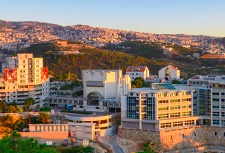
4. How does the dorm system work and do you like it?
“The dorm system depends on each university. At UBC, first-years get priority, so if any firstyear applies for housing, they will get it for sure. In my campus at UBC, there are 3 different residences for first years. I got put in the most populated one; 2 buildings, 19 floors each, so basically around 2,000 people living in it, and I really liked it because you get to meet so many people thanks to the events which are constantly being held in the beginning of the year for you to meet the people on your floor to communicate and there are challenges for bonding, etc. It seems awkward, but I think it’s an experience of a lifetime, and everyone should try it at least once in their life; you’re not a college student forever, and undergrad is the right time to try things out like that.” – Nataly El Bittar, UBC
“I do not stay in the dorms on campus. However, I’ve had friends who have. They claim it to be convenient, safe and clean. I’m sure living with your friends is also a quite fun university experience.” – Michelle Bado, NDU
“In the UK I decided to go for private accommodation where I cook my own food, I have my own space. Personally I like living by myself; it took me some time to adjust, but when I did, it was amazing. I thought it was going to be a way bigger deal than it actually was, I found living by myself easier than I thought it would be.” – Talia Matar, University of Nottingham
“I don’t personally use the dorm system, but I know that at AUB boys and girls are separated, and it’s very nice, everyone likes it. You have meal plans, etc.” – Michel Sadek, AUB
“At Covenant College, you have to live on campus for 1-3 years and then you have the option to move off campus your senior year. I stayed on all three years and I loved it. I lived in a great dorm (somewhat like a fraternity) and I had great brotherhood unity and friendship around me. Really brought me closer to a better social life.” – Roy Makkar, Covenant College
“You have two types: LAU dorms, which are usually more strict in their rules, and private dorms, which are more relaxed with rules. You have different options to pick from; price range, with a roommate or alone, distance from uni, cleaning arrangements, facilities in the dorms etc. Many dorms that are far from uni offer their own shuttle services. I liked the dorm life; it is very convenient in terms of being close to uni, teaches key life skills, and introduces you to lots of people!” – Enzo El Adm, LAU
“The dorm system at NDU is very simple. I don’t go to dorms, but it’s based on single or double male/female buildings. It’s a bit expensive and will range from $1,000 to $2,000 a semester.” – Tarek Yared, NDU
5. What system does your university follow (semesters, quarters, etc.)?
“My university follows the semester system; so fall semester starts in the first week of September and classes end in the last week of November; we have a couple days off for reading days to study for finals which take place from the 3rd of December to the 18th, (campus-wide finals; depends on each professor teaching your class), and then we have spring break, and then the second semester starts in the first week of January, and we finish classes first week of April. Finals are usually mid-April to the 30th.” – Nataly El Bittar, UBC
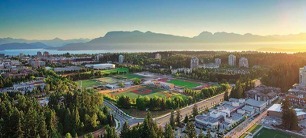
“NDU follows the semester system.” – Michelle Bado, NDU
“The university works by semesters, so we have 2 semesters a year.” – Talia Matar, University of Nottingham
“We use the semester system, but there exist summer and winter quarters.” – Michel Sadek, AUB
“2 semesters.” – Roy Makkar, Covenant College
“LAU has a semester system, with Fall running from End August to mid-December, Spring running from January to May, and a two-month Summer semester running from June to July.” – Enzo El Adm, LAU
“My university follows a system of 3 semesters per year (Fall-Spring-Summer).” – Andrea Saad, NDU
6. Were you forced to do freshman year?
“I am actually a freshman student; I got some credits from my IB courses, but only from my HL classes, and you don’t get much. Generally most people do freshman, not a lot of people go to second year in university, because they want to get requirements out of the way. The way UBC works is (at least for me; I’m in the Faculty of Science) I need to do some requirements in the first year in order to apply to my major. So now in June I will apply to my major, and then I get admitted into that specialty. In the first year, students are finishing up requirements for their major, or getting rid of elective requirements or graduation requirements for the future.” – Nataly El Bittar, UBC
“Yes, I was required to do Freshman year.” – Michelle Bado, NDU
“No, I did LP at school.” – Michel Ghaleb, NDU
“No; here in AUB, everyone who’s in IB or LP doesn’t have to do freshman, so I didn’t” – Michel Sadek, AUB
“I was forced to do freshman year and unfortunately couldn’t transfer my A-levels. BUTTTT the perks of that was that freshman year GPA was an easy 4.0 which is tough in the US especially a college affiliated with Georgia Tech, the best industrial engineering school in the US.” – Roy Makkar, Covenant College
“No I did my Lebanese Baccalaureate, so I skipped freshman year.” – Enzo El Adm, LAU
“I was not forced to do freshman year because I was an SE student in the Lebanese Program.” – Andrea Saad, NDU
“I didn’t do freshman year, because I was in the Lebanese program, so now I’m a sophomore.” – Tarek Yared, NDU
7. Are there any exchange programs at your university?
“I don’t know too much about exchange programs in my university because it’s usually the upper-year students who do it, but I know that there is a “Go Global” exchange program which is really popular in UBC; kids tend to go and do it abroad, usually in Europe, and it’s available for every faculty (engineering, business etc.), but it also depends on your specialty; sometimes your major doesn’t allow you to do, but there is also something called “Co-Op”, a working opportunity, where for a year or a semester you’re actually working somewhere for actual work experience, instead of taking courses. It’s a big thing; some majors actually require you to do it before you graduate.” – Nataly El Bittar, UBC
“Yes, exchange programs or programs similar to that are offered.” – Michelle Bado, NDU
“Yes, I’ve gotten emails about programmes to different places in Europe. It usually depends on your GPA, your proficiency in speaking the host country’s language, and your major, among other things. Some programmes are funded by the university and others require the students to pay. We also have exchange students from France in our PoliSci classes.” – Michel Ghaleb, NDU
“Yes, there’s a lot of universities in Europe; Bocconi, for example, and there’s also to Canada and the US; I’m not technically participating in an exchange program, but I will be doing a summer semester in Stanford.” – Michel Sadek, AUB
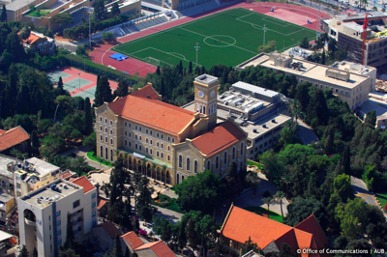
“You can study abroad almost everywhere and if you have the scholarship I have, the full tuition, the scholarship transfers for the semester.” – Roy Makkar, Covenant College
“Yes there are plenty of opportunities for different majors. I went on an exchange semester to Sciences Po in Paris. I have friends who went to Italy, Poland, Spain, the UK and the US.” – Enzo El Adm, LAU
“There are exchange programs at NDU but for very limited majors and they do offer scholarships internationally.” – Andrea Saad, NDU
“It offers a lot of exchange programs, for almost all majors every year to many countries like Denmark, UK, France, Spain, Portugal…”– Tarek Yared, NDU
8. What extracurriculars did you take part of while at BHS?
“I was IB1 and IB2 representative in Student Council (I was treasurer and secretary), I was leader of the ‘I Serve’ club, I was in the tutoring club, I was part of ushering, I was co-leader of the environmental club, I was part of MUN (so LAUMUN, advisor and dias member for BHSMUN), I also took part in the World Scholar’s Cup in the 2018 Beirut Round, I was in the Prom and Yearbook committee.” – Nataly El Bittar, UBC
“I was the Head of Prom Committee and the Events Committee. I was the Captain of the Girls Basketball Team. I took part in some Community Service activities as well.” – Michelle Bado, NDU
“BHSMUN, Scouts, Choir.” – Michel Ghaleb, NDU
“I did MUN, I was part of the soccer team, I played basketball, I was founder of the Marine Club, part of the music club, and I did Scouts.” – Michel Sadek, AUB
“MUN, soccer. I did many more, but I’ll mention these two as the most important where the former was the most important thing I ever did. I’ll reemphasize. DO MUN AND YOU WILL FIND SUCCESS EASIER.” – Roy Makkar, Covenant College.
“I was involved in many clubs: Environmental, Speakout, I Serve, and mostly MUN… We started BHSMUN in my Senior year. I was also on the student council for three years. (shoutout to this year’s members for the great job they are doing, I’m keeping up on Instagram haha).” – Enzo El Adm, LAU
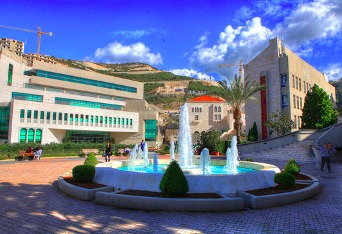
“In school I took part in choir, I was the director of BHSMUN after having done MUN for the previous 3 years, and I was the Head of ‘I Serve’ club for two years.” – Tarek Yared, NDU
9. Does your university offer any scholarships for international students?
“I’m not considered an international student, because I have a Canadian passport and I am considered a domestic student, but I know that there’s a lot for international students. Scholarships for international students are usually not very easy to get because there are so many international students, but I know that there are a couple of donors who give money to UBC, specifically for international kids, and there are a lot of merit-based scholarships and athletic scholarships.” – Nataly El Bittar, UBC
“Yes, NDU offers a scholarship up to 75% off tuition to the students that achieve a specific GPA. There are also sports scholarships, sibling grants and I’m sure more.” – Michelle Bado, NDU
“Yes, my university does offer scholarships, athletic scholarships and academic, and they can even offer both.” – Talia Matar, University of Nottingham.
“It’s not particularly for international students; if you have a high SAT score or great academics then it’s a possibility to get a scholarship.” – Michel Sadek, AUB
“As I said before, I did receive a full tuition scholarship which saved me a ton of money considering that Georgia tech is around 60K for each semester. But doing my program I only have to pay for two semesters of 60K :)” – Roy Makkar, Covenant College
“Not sure as a whole… I know they have a scholarship program for students from Middle East and North Aftrica (MEPI Program). Plus MUN scolarships and other scholarships for competitions, SAT scores, merits, etc.” – Enzo El Adm, LAU
“NDU offers a lot of scholarships; I was admitted with 100% scholarship, which only lasts for the first semester, and then the scholarship turns into a grade-based scholarship. So you get the scholarship depending on your GPA. Since I have a GPA higher than 3.8, I got a 75% scholarship. The value of the scholarship varies depending on you GPA, so for instance with a GPA from 3.5 to 3.6 you get a 25% scholarship, etc.” – Tarek Yared, NDU
10. Are you currently doing any internships or working?
“I am currently working at BHS as a Lower Elementary Drama Teacher. I am also a freelance actress. Currently, I am acting in a Blinktonasia Theatre Production called “Alienation”.” – Michelle Bado, NDU
“I currently have jobs with the university, I work at the library and any time they need someone to introduce someone else to a specific department related to engineering, I usually do that. I apply online. I also found out that the more languages you know the better; they’ll pay you more, and the more language you know, the more likely you’ll get a job, because a lot of international students come to visit the university and tour the departments. They also really like Arabic because there are a lot of students from the Gulf that come.” – Talia Matar, University of Nottingham.
“Right now I’m not doing an internship but I’m doing research, I’m working with doctors; we’re working on a project about multiple sclerosis, in neuroscience. It’s similar to an internship; you have after-university hours; I go for 3 hours every day to participate in the lab.” – Michel Sadek, AUB
“I’m currently not working or doing any internship; I’m just focusing on my academics in my first year, so I can get into the major I want. I joined a couple of clubs in university though, nothing outside of that. Maybe I will in the summer, but for now, with the pandemic going on, no one really knows what’s going to happen, so now I’m focusing on my online classes and exams, since those are still going on, and I’m hoping to get into the specialty that I want.” – Nataly El Bittar, UBC
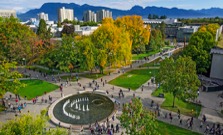
“This summer I have an internship at Scinovia Corp. a biomedical, bio mechanical engineering company that produces machines that analyze blood flow during open heart surgery. I’ll be working on the machines, doing some code work, and also working on the sales and marketing team in order to find ways to increase efficiency and work flow. Regardless of what I am currently doing, making connections was the most important thing here in the US. I was able, through people I became acquainted with, to receive internships at a 3D printing company, Pacific Northwest National Lab, the major supplier of all packaging materials in the US, and the largest and most prestigious Asphalt company in the US. They say, “it’s who you know that gets you the job, but what you know is what makes you keep it” – Roy Makkar, Covenant College
“Yes, I graduated in 2019 and am currently working at Kullun Irada, a a Lebanese lobby group targeting political reform in the country with the aim of attaining engaged citizenship, transparency and accountability. I will also be going to do my Masters at HEC in Paris this September” – Enzo El Adm, LAU
“Currently I finished 60 hours of obligatory internship and got offered the job straight after so I am now working at Brandem.” – Andrea Saad, NDU
“I am currently working and interning; I am interning at CARE, which is a special educational school/center, where we deal with kids on the autism spectrum, with learning disabilities, and all the aspects which educational psychologists are specialized to deal with. I also work as a freelance tutor, so I am split between university, work and internships. NDU offers a lot of internships; in fact, you are forced to do an internship in the last semester, which they offer to you. But other than the forced internship in the last semester, they offer other optional ones.” – Tarek Yared, NDU
11. What courses did you take in high school?
“In Grades 9 and 10 I was in the IGCSE program, I did the IG in math, biology, chemistry, physics, English literature. For grades 11 and 12 I did the IBDP program; I did English Lit & Lang SL, Arabic SL, ITGS SL, Math HL, Chemistry HL, and Biology HL.” – Nataly El Bittar, University of British Columbia
“I’m not sure if my memory serves me well. But I recall taking English, Biology, Sociology, Arabic, Film Studies, World Peace (I think that’s what it was called), Environmental Studies and more.” – Michelle Bado, Notre Dame University
“I started as a Scientific student which meant my main courses were Physics, Maths, Chemistry and Biology. In senior year I switched to SE which was primarily Sociology, Economics, Literature, Philosophy…” – Michel Ghaleb, Notre Dame University
“I did IB, so I took Math, Chemistry, Physics, Arabic, English and ITGS, they all insanely helped me, and piece of advice for anyone planning to study abroad: I personally found that people (professors, potential employers etc.) found it really impressive to speak Arabic. If you have the opportunity to learn Arabic in high school, please do so, because at the end of the day, in Lebanon we speak English, Arabic and French, but from what I saw was: Arabic over French.” – Talia Matar, University of Nottingham.
“I was part of the Lebanese program, and we take everything; English, Arabic, Biology, Chemistry, Physics, History, Civics, Geography, Math, etc.” – Michel Sadek, American University of Beirut
“For courses, I took 5 A levels my senior year so A-level English, math, economics, physics, chemistry, and I think something else, but I forget currently. But yeah and I did the end-of-year A-level exam in all of them except Econ because there was no need :)” – Roy Makkar, Covenant College
“I was part of the Life Science section of the Lebanese Program, so lots of courses hahaha… English Arabic French Biology Chemistry Physics Math Civics History Geography Economics Sociology Philisophy PE Art (might have forgotten a few…)” – Enzo El Adm, LAU
“In high school I took 13 subjects all-in-all in LP (English-Arabic-History-Civics-Geography-PE-Sociology-Economics-Philosohpy- Math-Chemistry-Biology-Physics)” – Andrea Saad, NDU
“I did the Lebanese Program, so I took all the courses in the world; I took the scientific track and then general sciences, so math, physics, chemistry, that was the main focus.” Tarek Yared, NDU




